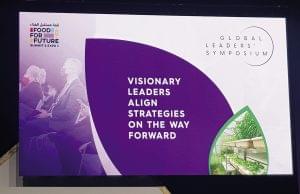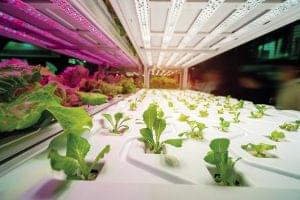Magazine: Food for Future – the last moments

Guest writer:
Dr. Erzsébet Némedi
managing director
Expedit Nodum
Expo 2020 in Dubai actually opened only in 2021 and its main topic was sustainability. One of the programmes was a 2-day conference and expo, titled Food for Future. Visitors of this had the chance to realise: we can’t just talk about the foods of the future anymore, as they aren’t enough to save the world. It isn’t enough to create the products of the future; we must make them serve the future, placing the whole question in a bigger context.
Visionaries and accomplishers
WHO hosted panel discussions, where the main topics were agricultural policy, strategies, ethical and social issues, and the participants were prestigious figures. The motto of the Global Leadership Symposium was the following: visionary leaders are preparing for the future following a strategy. In the Make it Happen tent the speakers were accomplishers, those special companies and foundations that change our world, invent, reform and register patents. In the Generation Food tent the representatives of successful start-ups shared their experiences with the audience. As for the exhibitors, many of them brought futuristic solutions, e.g. for solving the problem of water shortage by precision automation or artificial intelligence technology.

The Dubai Food For Future Summit & Expo was centred around adaptability, resilience and the reduction of carbon footprint
Printed meat and functional chewing gum
One of the exhibitors developed a cultured meat production method that involves 3D printing, which can even set personalised meat-fat ratios for users. The first steak they produced cost USD 250, but in the next few years the price of printed meat can go down to the level of ordinary meat available in shops. A Singapore-based company uses cells to produce meat, shrimp and lobster – and they do this without genetic manipulation of any kind.
A company from Israel set out to satisfy the growing protein need of consumers with crickets. The protein content of cricket meat is 72% and already no less than 1.3 billion people eat cricket all over the world. Another Israeli firm developed a functional chewing gum product: after 2 minutes of chewing this switches off the sweet taste receptors on our tongue, and because we don’t feel the sweet taste, we won’t crave it. This can be of great help to those who try to quit eating sweets.

Technologies presenting vertical farming, precision nutrient management and tápanyag-adagolást, aeropony were to be seen at many places
Superfood from waste
Some of the companies present are active in the fields of waste management and carbon neutrality. One of the most comprehensive solutions was presented by an upcycling company from Israel. They process waste to make superfoods and the goal is to feed people in poor regions of the world. The company is in talks with Dubai for collecting the leftover food from all hotels in the emirates, which then would be turned into superfood powders utilising special technology (freeze drying, pulverisation, etc.). Some of the different powder mixes will be used as functional additives in food production, and the rest will serve humanitarian purposes. There was another exciting project introduced: in just 4 years a sustainable agri-city, called FoodTechValley, will be built in Dubai, and this will serve as an incubator for thousands of start-ups. //
Related news
Fashion, drones and sustainability – the new face of agriculture at the AgriTech InnoExpo event
🎧 Hallgasd a cikket: Lejátszás Szünet Folytatás Leállítás Nyelv: Auto…
Read more >dm welcomes customers with stable prices and a superb price-value ratio
🎧 Hallgasd a cikket: Lejátszás Szünet Folytatás Leállítás Nyelv: Auto…
Read more >Related news
Nestlé to sell remaining ice-cream assets but commits to Froneri venture
🎧 Hallgasd a cikket: Lejátszás Szünet Folytatás Leállítás Nyelv: Auto…
Read more >40 secure jobs, sustainable solutions – new BURGER KING® in Csepel
🎧 Hallgasd a cikket: Lejátszás Szünet Folytatás Leállítás Nyelv: Auto…
Read more >









